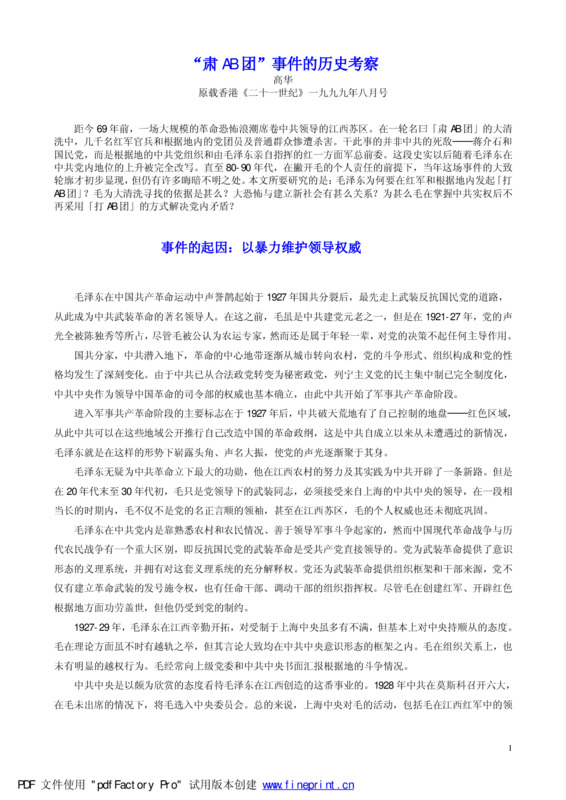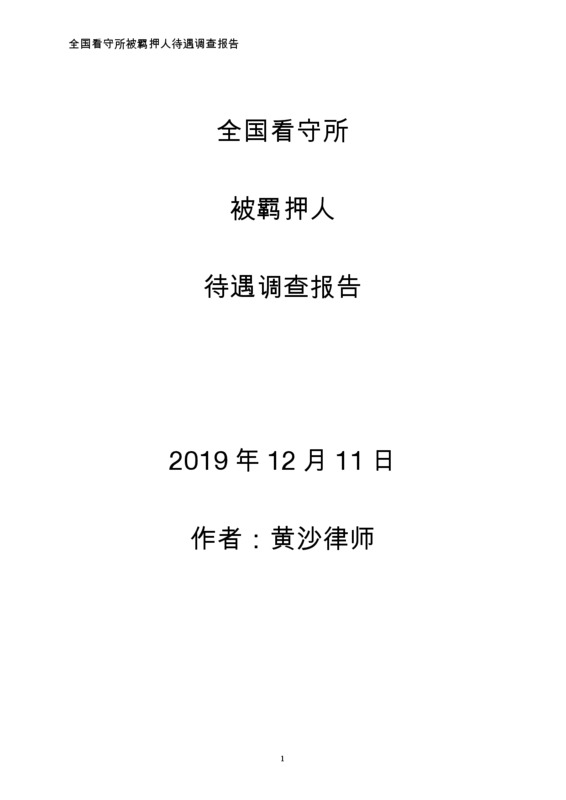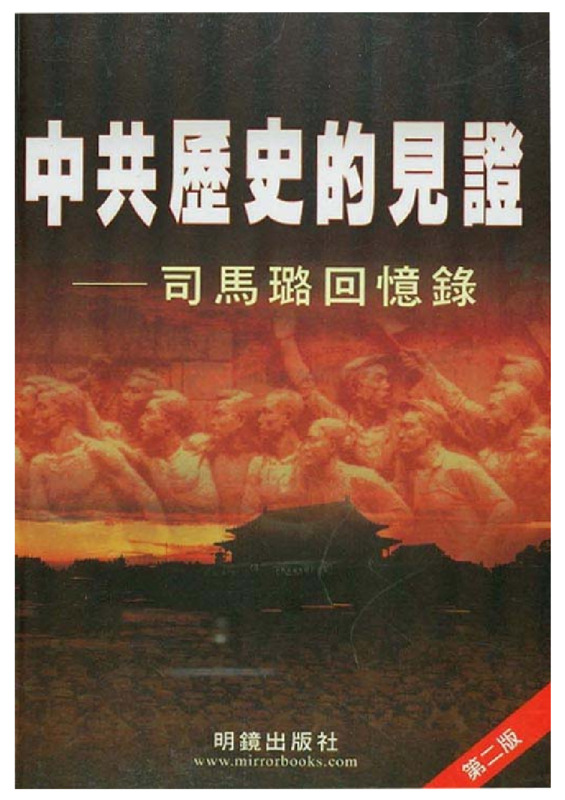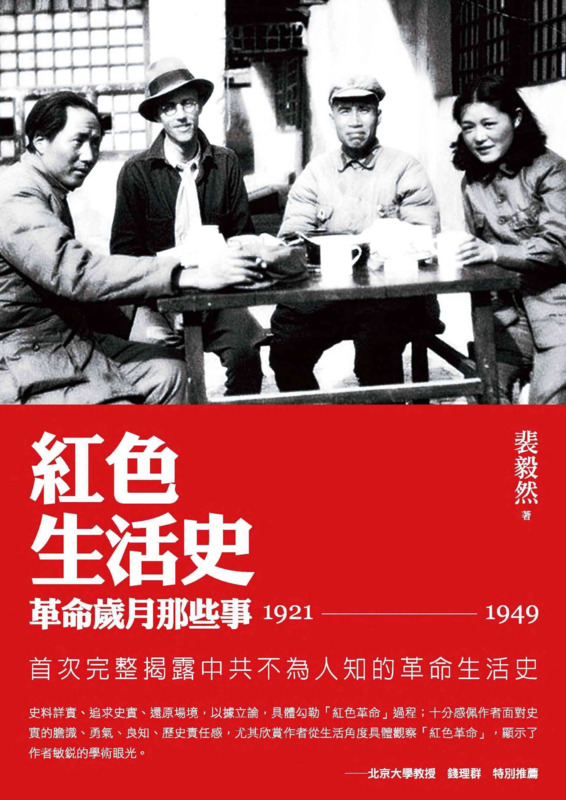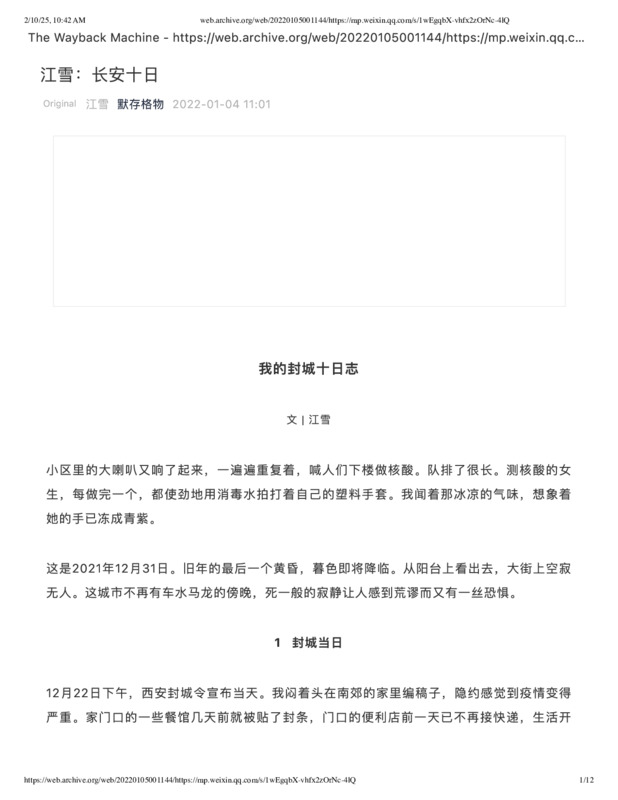Explore the collection
Showing 38 items in the collection
38 items
展览
Above Ground: China's Young Feminist Activists and Forty Moments of Transformation (English)
In March 2015, the arrest and detention of five activists in China brought international attention to the feminist movement in that country, which had already been battling gender discrimination, sexual harassment, violence against women, and homophobia for many years. While the West has only recently turned its attention to the “Feminist Five” and their fellow activists, China has a long and deep history of feminist thought and action. This exhibit seeks to make visible the work of recent feminist activists in China, to share their work with a broader audience, and to spark interest in the history and present of feminist activists, advocates, and scholars in China.
This digital exhibit is a faithful representation of a physical exhibit of the same name, which was hosted by the University of Michigan’s Institute for Research on Women and Gender from January through June 2016.
The exhibit (English) consists of 40 images depicting street actions and online campaigns initiated by young feminist activists, raising awareness and demanding government actions around issues of domestic violence, sexual harassment, education and employment equality, rights of sexual minorities and marginalized groups , and so on.
At the opening of the physical exhibit on January 26, 2016, Lü Pin, the curator of the exhibit and a long time feminist activist and researcher, remarked on the creative and subversive strategies of the young feminist activists:
“That’s why this was a story about visibility from the very beginning. First of all, they wanted people to have to notice this issue. Second, they wanted people to have to notice this group of people. ‘Noticing the issue’ was not just about making the issue of women’s rights become well-known, more importantly, it meant that the issue had to be accepted as a public issue that society would acknowledge as something that was very important. This was not something for women, or something private. Next, as we all considered this to be an important matter, the government had to respond. Thus, in this process, communication or media was very crucial, because it could amplify the power of the unknown.”
Using materials from the physical exhibit, this digital exhibit was created by librarians from University of Michigan Liangyu Fu (Chinese Studies) and Meredith Kahn (Women’s Studies), who created additional descriptive information for the images, as well as a bibliography of relevant sources.
Go to Exhibit: https://apps.lib.umich.edu/online-exhibits/exhibits/show/aboveground.
Book
Our Stories: Women in COVID-19 in China
This is the fourth issue of the “Our Stories” series published by WeChat public account “We and Equality,”, a compilation of 20 oral narratives from Chinese people who lived through the COVID-19 pandemic firsthand, and a personal reflection by the author of this issue, Qiao Yilin. The editors hope to “document the history of ordinary people, to combat the forgetting that should never have happened, and to present the real experiences, feelings, and voices of all of us–to help us remember what has happened to us.”
The interviewees in this volume are diverse, including those of different ages, educational background, ethnicities, physical and mental status, sexual orientations,marital status, and mobility. They shared their own memories of the pandemic, including facing threats to their survival due to food shortage, not being able to take anti-depression medication due to the lockdown, international students having a hard time returning to China, people with hearing impairments facing various inconveniences, and the discrimination faced by those who had recovered from COVID-19Although primarily focusing on experiences and feelings during the pandemic, many interviewees shared additional personal stories that provided useful background information for readers to understand their situation during the pandemic.
In addition to these personal narratives, “We and Equality” also published a 44-question “Women's Mental Health Questionnaire” on WeChat, asking about respondents’ experience during the pandemic, including their sense of belonging, care/housework commitments, sleep quality, emotional and mental status, feeling about quarantine, lockdown, illness or death of loved ones, and attitudes towards the government’s COVID-19 policies. The questionnaire received a total of 453 valid responses. Based on the responses, “We and Equality” has compiled a bilingual data analysis report.
”We and Equality" is a grass root project started in November 2016. Through the WeChat public account, they publish articles weekly to raise awareness and share knowledge on gender-related issues in China. They also organize in-person activities bi-weekly where people gather for in-depth discussion, and foster a community to promote gender equality.
Book
Collected Papers of Wu Yisan (2)
Writer Wu Yisan is the founder of Hong Kong Five-Seven Society, an organization established in 2007 and dedicated to the collection, research and publishing of everything related to the Anti-Rightist campaign in 1957, to restore and present the truth about a period of history characterized by severe persecution of intellectuals. Over the years, Mr. Wu has devoted himself to compiling *[The Dictionary of Names of 1957 Victims](https://minjian-danganguan.org/collection/1957%E5%B9%B4%E5%8F%97%E9%9A%BE%E8%80%85%E5%A7%93%E5%90%8D%E5%A4%A7%E8%BE%9E%E5%85%B8)*. As the Chief Editor of The Hong Kong Five-Seven Society Publishing House, he also published *The Biographies of the 1957 Rightists* and *[New Biographies of the 1957 Rightists](https://minjian-danganguan.org/collection/%E2%80%9C%E4%BA%94%E4%B8%83%E2%80%9D%E5%8F%B3%E6%B4%BE%E5%88%97%E4%BC%A0%EF%BC%88%E4%B8%8A%EF%BC%89)*.
This book is a collection of Wu’s political essays, including nearly one hundred of his published and unpublished essays and speeches between 1999 and 2017, including historical and current affairs analyses, with an emphasis on commentaries of persecuted intellectuals and political dissidents. These people are often called "traitors of China (han jian)" by CCP, but Wu Yisan argues that the CCP is the real traitor that betrays the country and its people.
Our archive also hosts another anthology of his, *[Is Chen Yi a Good Comrade](https://minjian-danganguan.org/collection/%E6%AD%A6%E5%AE%9C%E4%B8%89%E6%94%BF%E8%AE%BA%E6%96%87%E9%9B%86%EF%BC%881%EF%BC%89)*?
Book
Free Zhang Zhan
Zhang Zhan, born in 1983, is a Chinese lawyer and a dissident of the Communist Party system. In early February 2020, she rushed from Shanghai to Wuhan, which was under lockdown due to the COVID-19 epidemic, to conduct on-the-spot interviews and released a series of video reports on Wuhan's lockdown. More than three months later, she was arrested by Chinese police for "picking quarrels and provoking trouble" and taken to Shanghai for detention.
In December 2020, she was sentenced to four years in prison for picking quarrels and provoking trouble. Zhang Zhan went on hunger strike in the detention center and prison, and there were reports that he was critically ill several times. Her courage and resistance attracted the attention of the international community.
The book *Free Zhang Zhan* was edited and created by Wang Jianhong, the head of the "Zhang Zhan Concern Group" on the Internet. It brings together Zhang Zhan's articles and self-media posts published on the Internet, as well as interviews of Zhang Zhan before she lost her freedom, and interviews, as well as poems and articles from outsiders supporting Zhang Zhan. The book reviews the course of Zhang Zhan's case, Zhang Zhan's struggle in prison and the repercussions it aroused at home and abroad. It was published on May 13, 2024 when Zhang Zhan was released from prison after serving her sentence.
This book preserves and records the history of Wuhan's lockdown in China due to the COVID-19 epidemic. Nowadays, Zhang Zhan's articles and words of support for her have been censored and blocked in China, which makes the book even more precious.
Article
Historical Examination of the Purge of the "AB" Regiment
More than 70 years ago, a massive wave of revolutionary terror swept through the CCP-led Jiangxi Soviet Union. Thousands of Red Army officers and soldiers, as well as members of the Party and the general public in the base area, were brutally murdered in a purge called the "Purging of the AB Troupe." Gao Hua's article examines why Mao Zedong initiated the "purge of the AB Group" in the Red Army and the base areas. What was Mao's rationale for the Great Purge? What is the relationship between the Great Terror and the establishment of a new society? Why did Mao stop using the "Fighting the AB Groups" as a means of resolving internal conflicts in the Party after he assumed real power in the CCP?
Article
Huang Sha, 2019 National Survey on the Treatment of Detainees in Custodial Facilities
This report focuses on the human rights situation in detention centers in China. Mr. Huang Sha distributed the questionnaire to the practicing lawyers he knew, and then the practicing lawyers took the questionnaire and filled it out in the form of questions and answers when they met detainees in the detention centers. The questionnaires were then collected and counted, resulting in a research report. The span of time for filling out the questionnaire in the detention center is: from July 2, 2019 to November 19, 2019. There were 101 valid questionnaires recovered.
Book
Mao: The Unknown Story
This book presents the dramatic life of Mao Zedong, revealing a wealth of unheard-of facts: why Mao joined the Communist Party, how he came to sit at the top of the Chinese Communist Party, and how he seized China step by step. Writers Jung Chang and her husband Jon Halliday took ten years to complete this book, interviewing hundreds of Mao's relatives and friends, Chinese and foreign informants and witnesses who worked and interacted with Mao as well as dignitaries from various countries.
Purchase link:https://www.amazon.com/Mao-Story-Jung-Chang/dp/0679746323.
Book
Memoirs of Sima Lu: A Witness to the History of the Chinese Communist Party, The
Sima Lu (1919-2021) was an expert on the history of the Chinese Communist Party. He joined the Chinese Communist Party in 1937, then was politically persecuted in Yan'an, left it, and was expelled from the Party in 1941. In 1952, Sima Lu published “Eighteen Years of Struggle” in Hong Kong, writing about his tortuous journey from defecting to the Communist Party to his awakening and eventual choice of freedom. It became a sensation. He has made in-depth special studies on several leading figures of the CCP, such as Qu Qubai and Zhang Guotao. His memoir, “Witness to the History of the CCP”, is divided into three chapters according to its contents: the first is about his personal experience, the second about the first generation of CCP figures, and the third is devoted to the struggle between Mao Zedong and Zhou Enlai.
Book
My Mother :Gao Yaojie
Author Eva writes about her relationship with Gao Yaojie, a Chinese doctor. Dr. Gao Yaojie, who was severely repressed by the Chinese government for exposing the mass infection of Chinese farmers in Henan Province, China, by selling their blood, had no choice but to leave China at the age of 78 and go into exile in the United States. The dissemination of her story is strictly forbidden in China. In this book, author Eva describes Gao Yaojie's noble heart, her story, and her experiences.
Film and Video
New Citizens’ Trial
In June 2010, scholars and activists Xu Zhiyong, Teng Biao, Wang Gongquan, Li Xiongbing, Li Fangping, Xu Youyu and Zhang Shihe (Tiger Temple) initiated the signing of the “Citizen's Pledge”, which called on Chinese citizens to “abide by principles of democracy, and the rule of law, safeguard the rights and livelihood of the people, and promote good governance”. On May 29, 2012, Dr. Xu Zhiyong, one of the founders of the pro-democracy movement “Open Constitution Initiative” (Gongmeng), published an article entitled “China's New Citizen Movement”, officially launching the <a href=“https://web.archive.org/web/20121226221847/http://biweekly.hrichina.org/article/1575”>“New Citizen Movement”</a>.
The goal of the New Citizens Movement is a free China governed by democracy and rule of law, a vibrant civil society, and a new national spirit of “freedom, justice, and love”. It aims to promote political and social transformation from authoritarianism to constitutionalism, and Chinese people will be treated as citizens, not subjects of the ruling class. Activities of the New Citizen Movement include advocating for equal rights in education, public disclosure of officials' properties, and organizing local citizen gatherings. (For more information on the New Citizens Movement, see the <a href=“https://cmcn.org/”>Chinese Citizens Movement </a>website. Organizers and participants in the New Citizens Movement have been subjected to repression and persecution.
On July 5, 2012, several hundred parents gathered at the Ministry of Education's Petitioning Office, displaying banners and chanting slogans demanding that the government protect migrant children’s right to education, before being stopped by police, who also beat them. As a result of this and other advocacy activities, New Citizens Movement organizers Xu Zhiyong, Zhao Changqing, and Ding Jiaxi were arrested in 2013 and charged with gathering a crowd to disrupt order in a public place, and their cases were heard for the first time at different levels of court in Beijing on January 22, 2014, on the eve of the Chinese New Year. All were sentenced to jail.
This documentary includes footage of the parents' protest in July 2012, and outside the courthouse at Xu Zhiyong's trial on January 22, 2014, as well as interviews with family members of the arrested activists, their lawyers, and academics, and supporters of the movement.On the day of his trial, hundreds of people showed up outside the courthouse in support, invoking Article 35 of the Constitution to point out that the case was an unfair trial that violated citizens' freedom of speech and expression.
In the film, Xu Zhiyong says in an interview that the New Citizens Movement wants to solve social issues through judicial processes, and that he believes it is important to take into account the perspectives of different stakeholders. Even with such a moderate stance, the authorities still harshly suppressed him and portrayed him as an enemy of the state. Scholar Guo Yuhua commented on the case : “If we wait for a ready-made civil society, there is none. Activism is to open up space where there is none, to create gaps where there are no gaps, and to expand it gradually.”
Book
Newly Discovered Mao, The: Volume I
Author Wang Ruoshui spent his early years studying philosophy at Peking University. He served as deputy editor-in-chief of the Communist Party newspaper “People's Daily” and was able to participate in high-level ideological discussions, gaining a deep understanding of Mao Zedong as a person and of his thought. He was one of the rare intellectuals within the CCP system who had an independent personality as well as the ability to think for himself. After his death from cancer, his wife, Feng Yuan, helped put together this posthumous book. Published by Ming Pao Press in 2002, it has been described as "the first and most comprehensive and in-depth discussion of Mao Zedong and his thought."
Book
Newly Discovered Mao, The: Volume II
Author Wang Ruoshui spent his early years studying philosophy at Peking University. He served as deputy editor-in-chief of the Communist Party newspaper "People's Daily" and was able to participate in high-level ideological discussions, gaining a deep understanding of Mao Zedong as a person and his thought. He was one of the rare intellectuals within the CCP system who had an independent personality as well as the ability to think for himself. After his death from cancer, his wife, Feng Yuan, put together this posthumous book. Published by Ming Pao Press in 2002, it has been described as "the first and most comprehensive and in-depth discussion of Mao Zedong and his thought.
Film and Video
Not the Foreign Force
During the three years of the "zero-COVID" policy enforced by Xi Jinping's government, the daily life and freedoms of the people were severely limited. A fire in Urumqi, Xinjiang, finally ignited public dissatisfaction with the measures. On November 26, 2022, when the people of Shanghai spontaneously gathered in the streets to mourn the victims of the fire, no one expected that this memorial activity would lead to nationwide protests against the pandemic policies. At the scene, Chen Pinlin and his girlfriend, Wang, filmed many protest videos at the protest site on Urumqi Middle Road in Shanghai.
In November 2023, on the anniversary of the White Paper Movement, Chen Pinlin uploaded the documentary to YouTube and other social media platforms, garnering hundreds of thousands of views. Less than a week later, he and his girlfriend were arrested. His girlfriend was released on bail, while Chen Pinlin remained in custody.
<a href=“https://tenchu.org/pocd/public/pocs/3551”>Chen Pinlin introduced the documentary as follows</a>: "I am the director Plato. In November 2022, I personally participated in the protest on the night of November 26 in Shanghai. This was my first involvement in a political event in China, and it was also the first time I expressed my political demands in China. Besides the footage I personally filmed on that day, the film also includes iconic video materials from before and after the protest. I tried to present a complete picture of how the dynamic zero-COVID policy pushed China to the boiling point and prompted people to take to the streets to protest. After the event, the Chinese government distorted the facts and maliciously smeared the protests in Shanghai and the White Paper movement, misleading many people into thinking that the protests were the work of foreign forces. But is this really the case? On the first anniversary of the Shanghai Urumqi Road protest, I created this documentary, “Urumqi Middle Road”, to record my personal experience and feelings of participating in the protest. I want to explore why, when internal contradictions appear in China, foreign forces are always blamed? Everyone knows the answer. The more the government misleads, forgets, and shields the truth, the more we must speak out, remind people, and remember. Remember the White Paper, remember November 26, remember Urumqi Middle Road, remember the Xinjiang fire, remember the Guizhou bus, remember dynamic zero-COVID, remember the 'big white' (the white-suited workers), remember Tiananmen, remember the Cultural Revolution, remember the Three Years of Great Famine. "By remembering the ugliness, we can turn our hearts toward the light. I also hope that China can soon embrace its own brighter future."
At the end of this movie, Chen left this narration: Some people say, what is the point of protesting on the streets? In the end, it's still the same, suppressed, shielded and misinterpreted. But as Churchill said, ‘Courage is the most important human trait, with courage, other human traits can naturally be possessed' We lacked experience and have been cowardly and wavering, but today we have the courage to stand up and to speak out. What we lacked this time, we can do better next time. If I were to do it again, I would still choose to be there. Because a government that is afraid of even a white paper can't defeat the justice in the hearts of the people.
On January 5, 2024, Chen Pinlin was formally arrested on suspicion of "picking quarrels and provoking trouble" and detained at Baoshan District Detention Center in Shanghai. On January 6, 2025, Chen Pinlin’s first trial was held in the Third Court of Baoshan District Court, where he was sentenced to 3 years and 6 months in prison. His sentence will end on May 27, 2027.
Article
Oral Interviews with Global Feminists
As one of China's foremost feminist activists and thinkers, Ai was interviewed by the Global Feminisms Project at the University of Michigan. In this interview, Ai talks about her upbringing as well as about the current state of feminism in China and its outlook.
Book
Red Life History - The Revolutionary Years (1921-1949)
Professor Pei Yiran's book is the first complete revelation of the untold revolutionary history of the CCP. The book covers many important points in the history of the CCP, including the use of Soviet rubles to build the party, the landlords fundraising campaign, and the love life of Mao Zedong and Jiang Qing, among subjects.
Article
Ten Days in Xi'an
Published on January, 2022, “Ten Days in Xi’an” is a log of Chinese independent journalist Jiang Xue’s daily experiences under COVID-19 lockdown, posted onto WeChat’s social media platform. In this piece, Jiang depicts the crises and challenges faced by Xi’an residents under lockdown, such as the lack of access to medical resources. “Ten Days in Xi’an” was viewed by millions of Chinese users on social media platforms when it was posted, and received comments and support from thousands of Chinese citizens. It was later translated into English by Andréa Worden and published on Probe International virtually. You can find the translated article in the PDF below, or through this link: <https://journal.probeinternational.org/2022/08/22/ten-days-in-xian/>.
Film and Video
The Memo
In the spring of 2022, a wave of COVID-19 exploded in Shanghai. Under the policy of “Zero COVID,” 24 million residents were put under forced lockdown. Filmmakers and reporters used their phones, televisions, the internet, and other materials to capture scenes of lockdown and disputes between officials and civilians in Shanghai. Producers of this short film titled <i>The Memo</i> believe that it is necessary to record this historic episode in order to prevent our memories from fading away.
The production team, which was founded in 2020, strives to create works about the lower classes of Chinese society. <i>The Memo</i> was nominated for the Clermont-Féron Short Film Festival.
Film and Video
Three Days in Wukan
Wukan is a village in Luwei City, under the jurisdiction of Shanwei City, Guangdong Province. From 2011 to 2016, Wukan villagers have continued to fight to protect their land and fight for villagers' rights. Facing strong pressure from the government, some even paid with their lives. In the process, the villagers had elected their own villagers' committee by one person, one vote to practice their democratic rights. Although the protests were eventually suppressed, the impact was far-reaching. Ai Xiaoming rushed to the scene at the beginning of the Wukan incident and left this precious record.
Article
Toolkit for the Removal of Xi Jinping
Before carrying out the protest, Peng Lifai had published a strategic guide for strikes and boycotts on ResearchGate. This 20-chapter document, spanning 21 pages excluding the cover and table of contents, summarized Peng's personal political ideas and served as an explanation of his actions. Read English summary <a href="https://chinachange.org/2022/10/19/bridge-man-peng-zaizhous-mission-impossible-and-his-toolkit-for-the-removal-of-xi-jinping/">here</a>.
The first chapter, "Strategy for Protesting Against National Traitors," explains that the purpose of strikes and boycotts is to oppose Xi Jinping's unconstitutional re-election and to push China toward democracy, freedom, and prosperity. It also outlines the methods of protest, including decentralization in the early stages, organizing communities and universities into networks, and using information and non-violent means to spread the message rapidly. Proposed methods of protest include honking car horns, strikes, boycotts, hanging banners, distributing leaflets, burning tires, and setting up roadblocks.
In the second chapter, "Opposing Xi," Peng Lifai wrote a humorous poem.
The third chapter, "A Letter to Fellow Countrymen," enumerates the regressions in Chinese society under Xi Jinping's rule, drawing connections to China's history of power transitions, uprisings, and political changes. He criticizes the oppressive nature of the "zero-COVID" policy and calls for resistance from various groups, including soldiers, police, party members, the media, unemployed and bankrupt individuals, entrepreneurs, civil servants, university students, and intellectuals. Peng emphasizes the need for soldiers, police, armed police, and government officials to receive the protest message, hoping for leaders like General Cai E from the Republic of China era, who opposed Yuan Shikai’s imperial ambitions, to rise and help remove the dictator. He writes, "Fellow countrymen, we are the masters of the People's Republic of China. If we remain silent, we will all become slaves to the dictator. For the right to vote, for fairness and justice, for freedom and democracy, for ourselves and our future generations, let us embark on a new national defense movement."
The fourth chapter, "Long Live the Ballot Song," calls for national elections for people's representatives and officials. It includes a cartoon designed by Peng, turning a nucleic acid testing booth into a polling station, with the caption: "We’ve been pretending to vote for three years. Just place a ballot box at the testing site."
The fifth chapter, "Who Are We," lists China's marginalized groups, including migrant workers, lower-class citizens, flexible workers, unemployed graduates, education sector employees, low-income populations, small businesses, and left-behind children. It concludes with Peng’s statement: "We need to be our own masters. We don’t need to live in a cage."
Chapters six and seven discuss Peng’s vision for a Chinese Communist Party Free Election Committee and a National People’s Election Committee, along with the constitutional and party statute bases for these political concepts.
Chapter eight provides an explanation of the relationship between government, state, and citizens. Peng compares the relationship between citizens and the state/government to that of property owners and property management companies. He writes, "I do not owe gratitude to the property management company, because I am the owner who pays the property fee. I am its master, and it is my servant."
Subsequent chapters describe Peng’s vision for a new government and its key policy demands, including ending mandatory nucleic acid testing, implementing "Charter 08" (a manifesto supported by Nobel Peace Prize laureate Liu Xiaobo), reducing taxes, and reforming state-owned enterprises. He concludes by quoting imprisoned lawyer Xu Zhiyong’s "Letter to Xi Jinping," once again expressing opposition to Xi’s re-appointment as leader. In the copyright statement, he encourages readers to share the guide widely.





